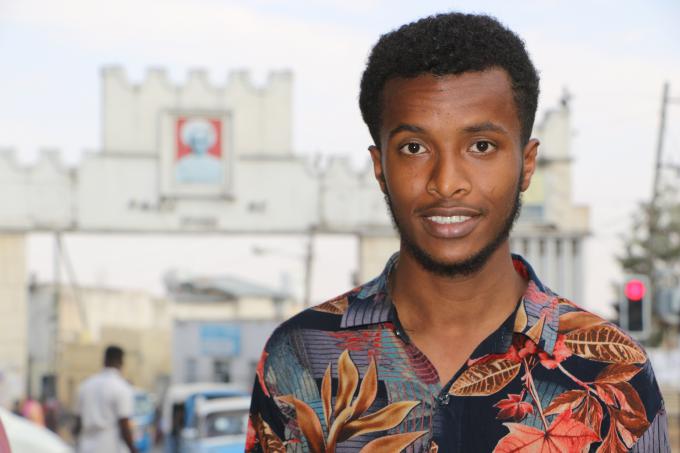Youth in action against harmful traditional practices; Murad's story
Murad, 17, leads “Gider Magala” (translated as the big market in the local Harari language) a youth association in Harar town of Harari Region, Ethiopia. A group of seventeen young volunteers established the association two years ago. The association now has about forty members.
Currently the association through its members and with the support of Save the Children’s Accelerating and Cementing changes towards total abandonment of all forms of FGM and early/forced marriage is implementing a peer-to-peer learning program whereby young people in the area openly discuss harmful traditional practices such as early marriage and female genital mutilation. So far, the association has reached more than 15,400 adolescents and other community members.

Murad’s story in his own words :
My name is Murad Hash. I am 17 years old. I now live in Harar city with my parents and two of my younger sisters. I am an 11th grade student at Aboker preparatory and high school. English and mathematics are my favourite subjects in the class and I aspire to become a software engineer in the future.
Two years ago, together with other sixteen of my close friends from this area we set up this youth association on our own initiative to support people who need help. Recently four of my friends and I, who are currently serving as leaders in the association, we were selected to participate in a peer to peer learning training organized by Save the Children and the Regional office for women, children and youth. After the training, we have been able to organize and conduct series of educational sessions to our peers about early marriage, FGM and other harmful traditional practices that affect girls and women in particular.
These days, in addition to its charitable work, our association is also designing and implementing programs to alleviate other social and economic problems in the community. Charity is one of my favourite activities and it is something that I want to do for the rest of my life.
Prior to the project, early marriage, FGM and other harmful traditional practices were among the most prevalent practices in our community, however now, because of the continuous education and awareness raising events, they have been significantly reduced.
Through our association, we have been able to regularly prepare and deliver educational messages to our peers through drama, poetry and music focused on the most common harmful traditional practices. Currently, we also use school mini-media, and social Media platforms like Facebook, Telegram and others to share educational information with adolescent girls and boys. The members of the association meet every two weeks and we carry regular discussion on different topics.
Since I started participating in the peer educational program, I have gained a better understanding of the most common harmful traditional practices in our community and I am currently working with my friends to raise awareness among youth and other community members.
Save the Children has been providing us with regular stationary, training manuals and other educational and promotional material support that enabled us to prepare different educational messages that we disseminate to adolescents and other community members.
Project background:
Child, Early and Forced marriage (CEFM) and Female Genital mutilation are the two most common harmful practices that violate the right of millions of women and girls in Ethiopia. In view of addressing this common practice, Save the Children with the funding support of the Norwegian Church Aid (NCA)/Norad and in collaboration with its key partners has designed and implemented a five-year project entitled Accelerating and Cementing Changes towards the Total Abandonment of all forms of FGM and child marriage.
The project is operational in six Regional States, (Afar, Amhara, Harari, Oromia, Southern Nations and Nationalities Regional States)
So far, the project has reached over 15,400 adolescents through the peer-to-peer educational methodology in Harari and Somali Regions. Through this project, more than 2,350 people were organized in to radio listening groups, where they discuss harmful traditional practices that affect women and girls in their area.
 Ethiopia
Ethiopia